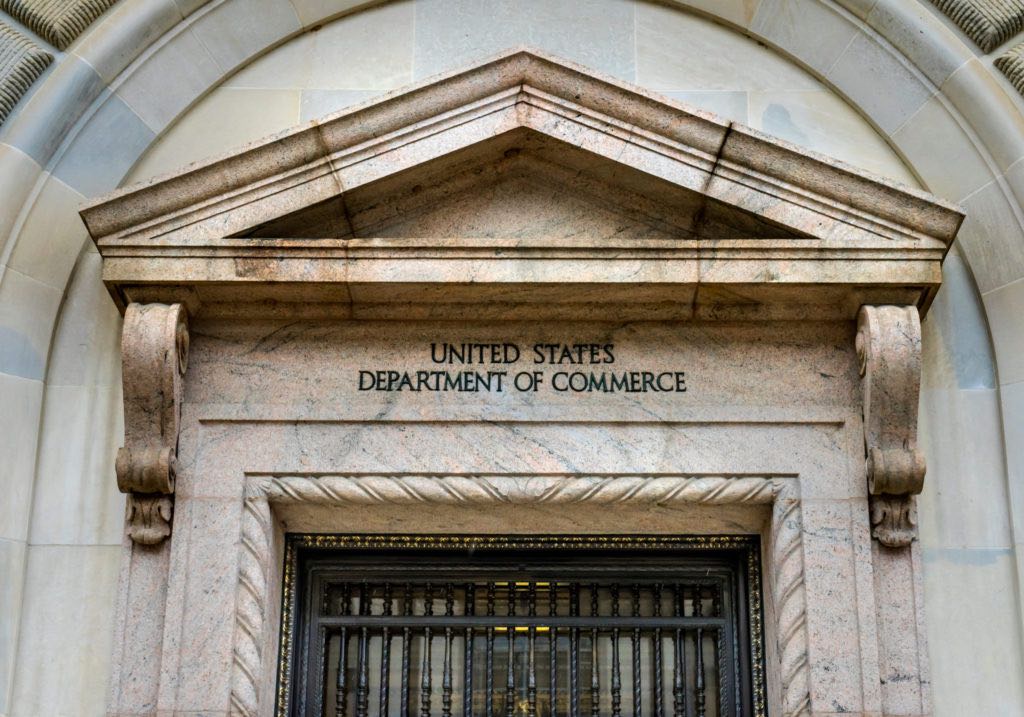
Joint Readout on Cooperation between the U.S. Department of Commerce and Innovation, Science and Economic Development Canada
Oct 21, 2022
Joint Readout on Cooperation between the U.S. Department of Commerce and Innovation, Science and Economic Development Canada
ASowah@doc.gov
Fri, 10/21/2022 – 15:19
FOR IMMEDIATE RELEASE
Friday, October 21, 2022
Office of Public Affairs
publicaffairs@doc.gov
Today, U.S. Secretary of Commerce Gina Raimondo and Canada’s Minister of Innovation, Science, and Industry François-Philippe Champagne met in Washington to discuss issues of mutual interest and reiterated their commitment to work together to address challenging bilateral, multilateral, and global issues.
Secretary Raimondo and Minister Champagne discussed the passage of the U.S. CHIPS and Science Act (CHIPS Act) and its implications for the North American semiconductor industry. The two leaders noted the importance of the CHIPS Act and its significant investments that will help revitalize the U.S. manufacturing economy and spur research and development in semiconductors. The Secretary and Minister underscored their commitment to U.S.-Canada supply chain security in the semiconductor industry and highlighted this as a key sector for collaboration between the two nations. This includes efforts to strengthen domestic research and development, commercialize emerging technologies and innovations in these areas, and bolster manufacturing capacity in both countries to support Canada and the U.S.’ mutual goals for supply chain resilience and industry competitiveness. The Secretary and Minister also discussed the impacts of the Inflation Reduction Act (IRA), the most significant climate legislation in U.S. history.
The Secretary and Minister discussed how the United States and Canada can continue to strengthen and grow shared commercial and economic interests on both sides of the border and advance collaboration under the pillars announced in the work plan last year, including cooperation on supply chain security and resiliency, innovation in sustainable and inclusive economic recovery, and collaboration through international fora.
The U.S. and Canada are collaborating on critical minerals processing, battery manufacturing, and recycling to reduce supply risks, enhance joint economic security, and strengthen strategic industrial sectors that rely on critical mineral supply chains. The International Trade Administration (ITA), Innovation, Science, and Economic Development (ISED), and Natural Resources Canada have reinforced cooperation under the U.S.-Canada Critical Minerals Action Plan and convened our governments and private sectors to share opportunities to fill in gaps in the critical mineral supply chain and present best practices related to Environmental, Social, and Corporate Governance (ESG) in the sector.
The U.S. Bureau of Economic Analysis, Statistics Canada, and Global Affairs Canada are helping to identify supply chain vulnerabilities by jointly developing new data and analyses of supply chain linkages between the United States and Canada.
The National Telecommunications and Information Administration, ITA, and ISED shared best practices to secure supply chains related to ICT technology during a stakeholder forum. With Canada’s recent announcement of its intention to restrict high-risk suppliers from its 5G networks, the United States and Canada continue to support more secure and resilient supply chains for advanced telecommunications network technology, including for 5G systems and beyond. To promote secure and interoperable 5G networks with resilient telecommunications supply chain worldwide, and advocate for a vibrant digital economy, Canada joined the United States and other like-minded governments in supporting the Prague Proposals on Telecommunications Supplier Diversity. The Prague Proposals outline the role of governments in enhancing 5G supplier diversity, including ensuring the appropriate policies are in place, investing in research and development, considering incentives, and taking part in international cooperation.
The U.S. National Institute of Standards and Technology (NIST) and the Standards Council of Canada (SCC) signed a memorandum of understanding to coordinate and collaborate on standards, conformity assessment, and accreditation. This includes the establishment of an International Standards Cooperation Network (ISCN) to enable the two countries to increase situational awareness, coordination, and influence in international standards development. SCC and NIST are working together to coordinate and collaborate on the development and alignment of artificial intelligence standards. Other potential areas of collaboration include critical and emerging technologies and health care.
The Secretary and the Minister recognized the value of collaborating in international fora to protect and advance our shared principles in global settings. Through bilateral and multilateral engagements, the United States and Canada have cooperated as close friends and allies to promote democratic values; demonstrate a commitment to diversity, equity, and justice; and strengthen global adherence to the rule of law. Earlier this year, the United States and Canada joined partner economies to establish the Global Cross-Border Privacy Rules System, which will establish an international privacy certification program to create trust in the cross-border data flows that are indispensable for companies across all sectors of the economy, workers, and consumers around the world.
The Secretary and Minister also emphasized the importance of standing together with allies and partners around the world in solidarity with a free and democratic Ukraine.
Commerce and ISED will continue to build upon work laid out last year by President Joe Biden and Prime Minister Justin Trudeau in the Roadmap for a Renewed U.S.-Canada Partnership.
Bureaus and Offices
Bureau of Economic Analysis
International Trade Administration
National Institute of Standards and Technology
National Telecommunications and Information Administration
Tags
CHIPS Act
Canada
Read the full report from the U.S. Department of Commerce: Read More



